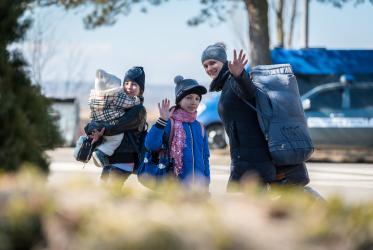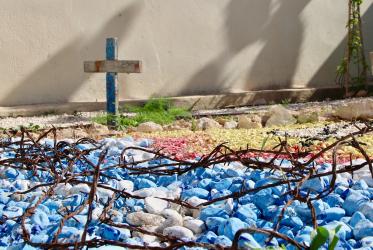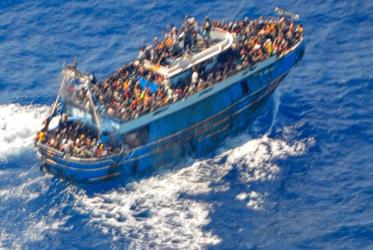By Marianne Ejdersten*
The refugee situation is something that we must treat with the utmost seriousness. People are fleeing without food, water and somewhere to live. These are people who have fled for their lives. It is a fact that we must treat with the utmost seriousness, says Rev. Dr Olav Fykse Tveit, general secretary of the World Council of Churches (WCC).
Last week, 35 bishops and church leaders from 20 countries in Europe met in Munich, Germany, with representatives from the Middle East and Africa. All the participants represented countries that have received many refugees or are themselves affected.
What did you talk about?
Tveit said: “We talked about the role and responsibility of churches. They discussed how a lasting solution should be found in the short and long term. We discussed the topic of human dignity and human rights and the importance of respecting international law.”
The consultation was organised by WCC in cooperation with the Evangelical Lutheran Church in Bavaria, Germany.
Tveit added: “The churches have stepped in and taken considerable responsibility, and it is an important task for us as Christians to provide support. Churches have a long tradition of working with refugees, not least through the Churches’ Commission for Migrants in Europe.”
Tveit also summarised the consultation by saying that it is important for church leaders to meet and share their experiences with each other. It is important to learn lessons from each other.
The refugee situation is acute and winter is fast approaching. Time is a key aspect.
What are the conclusions?
Tveit said: “It is important that we help all people in need, regardless of their religion. It is important to safeguard the equal value of all human beings and confirm the refugee status that gives them international rights.”
Tveit emphasises that the churches in Europe have taken considerable responsibility and they set a good example.
Why did you arrange the consultation in Munich?
Tveit says, “Bishop Heinrich Bedford-Strohm and I planned the consultation together following visits to, among other places, Hungary and Greece. We saw a huge need for working more together and for reserving time for theological reflection.”
Tveit underlined: “This gathering shows the need for meetings that transcend national boundaries and church traditions. I regard ecumenical work as a future model for solving joint issues. Churches are a good source of strength to count on. We have the opportunity to tackle the situation together and contribute to solidarity that transcends borders, to build bridges between various groups and to safeguard vulnerable people in society.”
What did you learn from the consultation?
Tveit said: “We need each other in today’s Europe. We need to work toward a peaceful solution to the conflict in the Middle East and safeguard religious minorities. We also see clear needs to draw up joint plans and to work on developing and strengthening interfaith dialogue.”
*Marianne Ejdersten is director of communication at the World Council of Churches
Links to the press release and communiqué:
European bishops and church leaders call for refugees’ safe passage
Church Leaders' Consultation on the European Refugee Crisis: Communiqué







